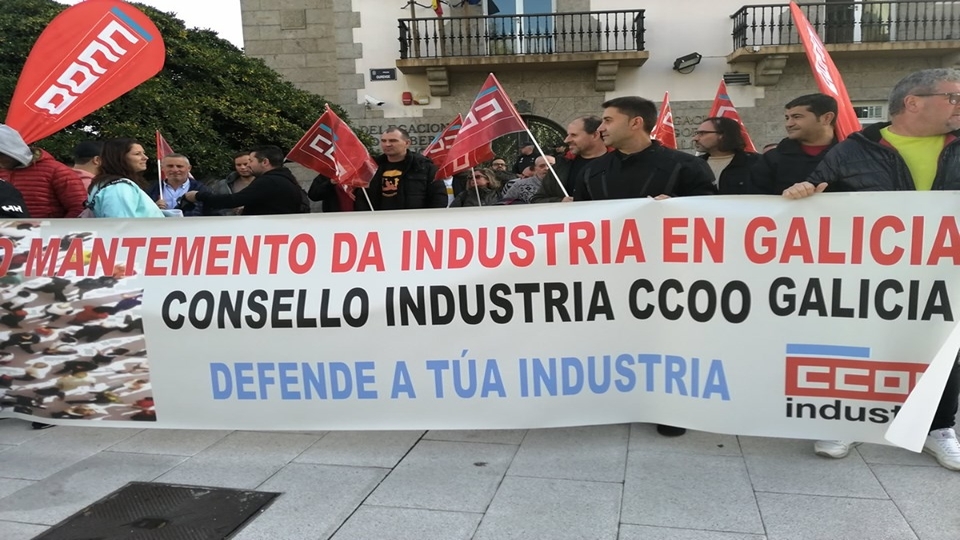On October 23, Wednesday, industrial and energy sector workers in Galicia, Spain, protested in front of the Spanish authorities in the city of A Coruña, demanding an energy pact for industries, and the protection of the jobs of energy workers. The backdrop for the current protests is the Spanish government’s energy transition policy, which aims at the closure of coal mines in the country in order to address growing environmental concerns.
The workers in the coal mines and related industries like thermal power plants expressed concern about the future of their jobs. Additionally, jobs in the heavy industries sector, which are dependent on the energy supply from the coal plants, are also at stake.
Last year, Spain initiated an ambitious policy to completely de-carbonize its economy and switch its electricity system wholly to renewable sources by 2050.
On Wednesday, workers and unionists from the Alcoa San Cibrao, the As Pontes de Endesa, the Meirama de Naturgy, Megasa, Isowat and the Alu Ibérica thermal power plants rallied before a delegation of the government in A Coruña in this regard. The call for the demonstration was given by the Workers’ Commision (CCOO).
CCOO secretary general of industry of Galicia Victor Ledo demanded that the regional and central government form a state pact for energy and industry, along with providing short-term solutions for the Meirama, Endesa, Isowat plants.
He claimed that the situation of the industry in Galicia is “dramatic”, both because of the “blatant” use of labor reform, as well as the high price of energy and the lack of an industrial policy that eases the impact of de-industrialization. “We run the risk of becoming an industrial desert. This is not the time for promises, This is the time for concrete commitments,” he added.
The regional government in Galicia (Xunta de Galicia) has also appealed to the Spanish government to address the concerns on energy, industries and jobs in the region. The transition to a carbon neutral economy is estimated to cause a massive impact on all sectors of the industry and the workforce. The trade unions in Spain are demanding a “new social contract” that can help engage workers during the transformation, and push the transition forward instead of holding it back.





